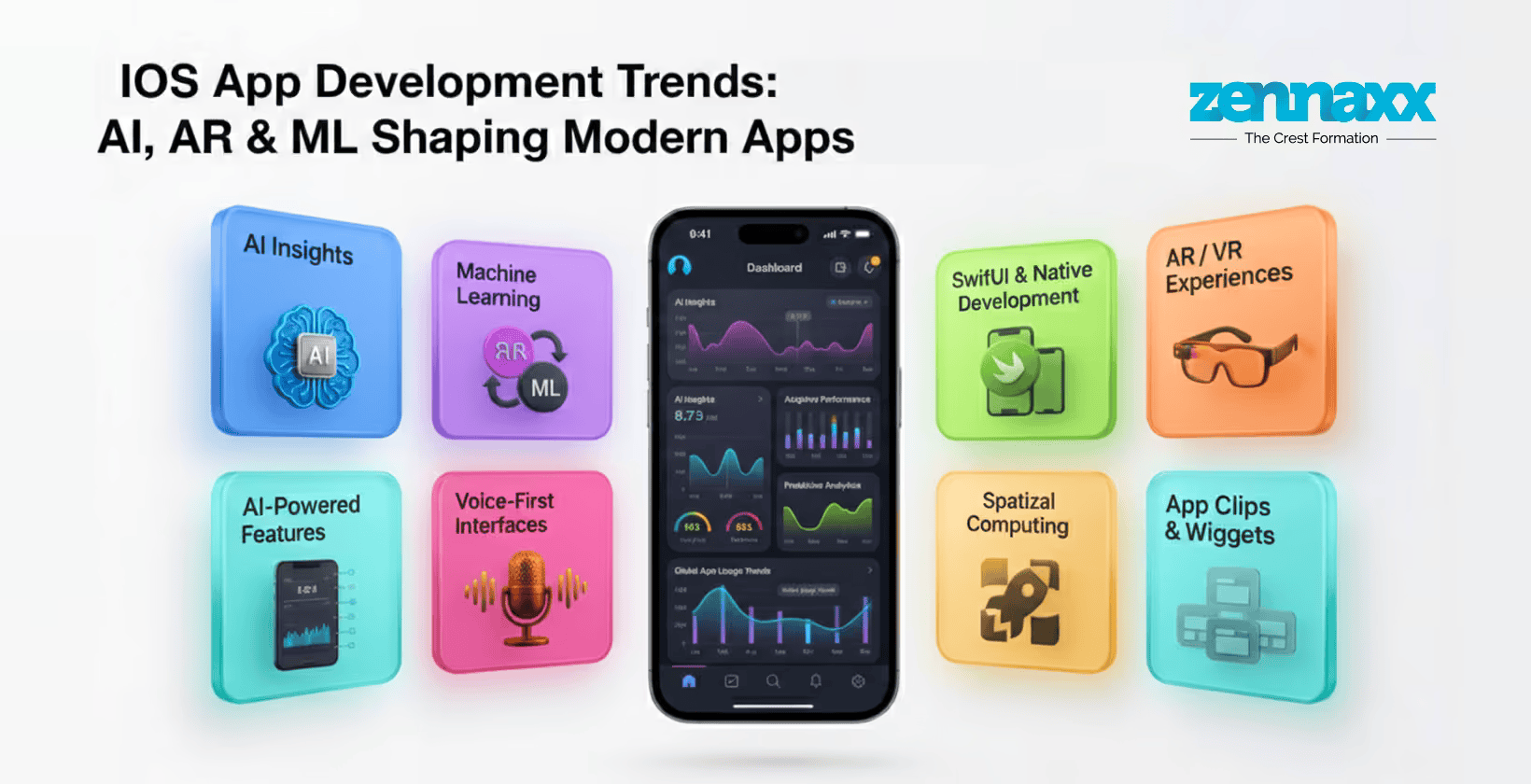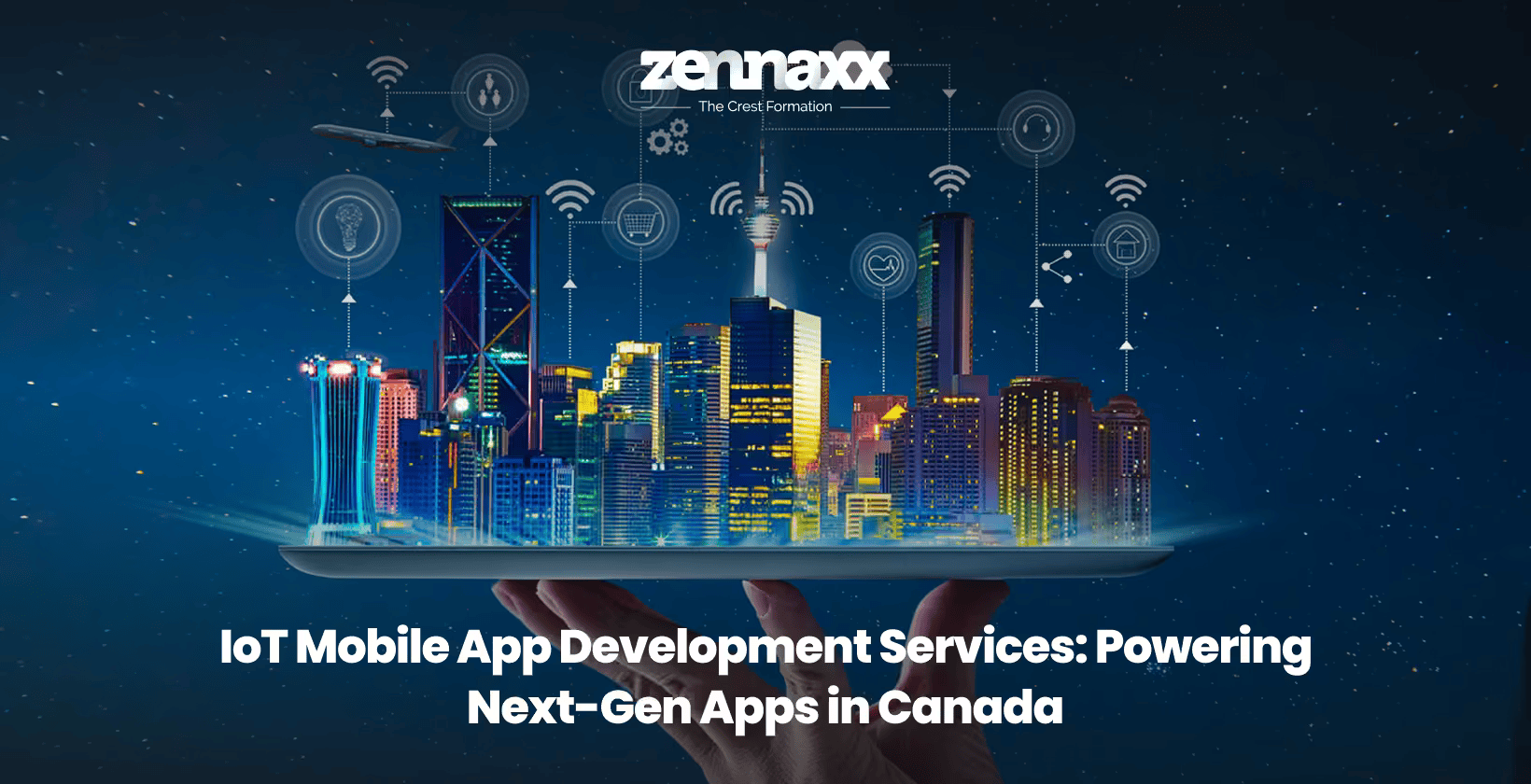The global digital health market is expected to grow to nearly $190 billion by 2025. If you are thinking about developing a healthcare mobile app, this resource will inform you about everything you need to know whencreating healthcare apps.
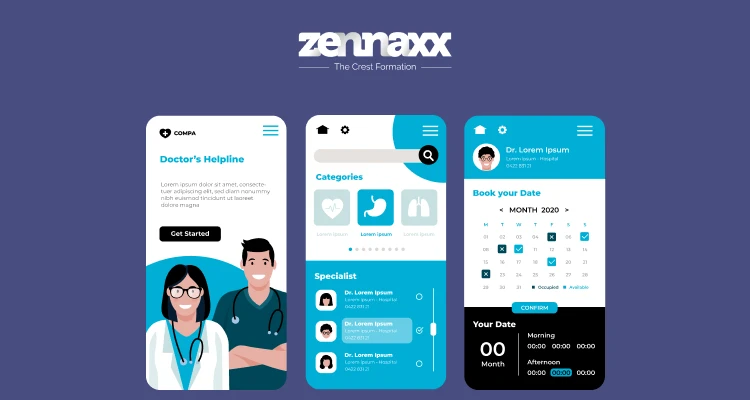
What is a Healthcare App?
Developing a healthcare app means making a mobile app that helps people manage their health worries using their phones or tablets. This could be things like tracking medical appointments, accessing electronic health records, dealing with insurance claims, and many more.
Software consulting in healthcare develops medical applications in every field. Medical fields are also starting to do many tasks online for patients and doctors.
Benefits of developing a healthcare app
For doctors: These apps help doctors keep track of patients, schedule appointments, and manage their staff.
For Patients: People can use these apps to book appointments, talk to their doctors online, or get health advice.
Lots of firms are developing healthcare apps. Here are some figures about them:
- There are about 45,478 healthcare apps available on Apple’s App Store.
- The Play Store has around 43,285 healthcare apps.
- In 2022, the global mHealth industry made $ 56.26 billion and is expected to grow to $ 861.40 billion by 2030. exhibiting a CAGR of 40.2% during 2023–2030.
- A survey by Accenture found that 75% of patients understand why health apps are essential.
- The telemedicine software solutions are predicted to grow to $17.14 billion by 2026.
Today, there are many different kinds of healthcare apps for various needs and functions.
Professional Healthcare Apps
Professional healthcare apps are specifically designed to connect doctors to the communication and treatment processes between patients and healthcare providers.
These apps serve as mediators for facilitating interactions and managing medical information. Here are different types of professional healthcare apps:
- 1. Doctor appointment apps:
- 2. Electronic medical/health records apps:
- 3. Medical reference apps:
- 4. Database apps:
- 5. Health tracking apps:
- 6. Networking apps (for doctors):
- 7. Telemedicine apps:
Healthcare Apps for Patients
These apps typically do not require direct support from doctors, but they provide valuable information and features to patients. Here are different types of healthcare apps for patients, each with its own set of features:
- 1. Medical education apps
- 2. Reminder apps
- 3. Healthy lifestyle apps
- 4. Dieting apps
- 5. Diagnosis apps for preventive purposes
- 6. Fitness apps
You have a ton of options for your startup idea with this broad spectrum of possibilities.
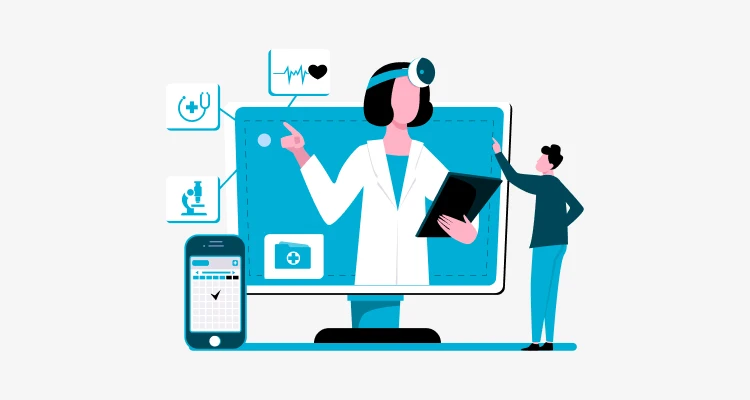
Different Types of Medical Apps
We are now going to discuss the different types of apps developed by software consulting in healthcare. The utilization of applications and their priorities will vary depending on the department and personnel human uses.
Here, we discuss a few different types of medical applications.
1. Health Apps for Patients
Patients should manage their routing and stay updated by using these apps. Patient’s health apps include keeping track of their regular checkups, scheduling appointments, or providing information about medical conditions and treatments.
2. Health Apps for Providers
Doctors and nurses use this health application to manage the routing schedule and time. They could help with things like managing patient records, accessing medical literature, or communicating with colleagues.
3. Health Apps for Medical Administration Staff
Workers in healthcare settings who perform administrative or office-related tasks can use these apps. They might help with tasks such as scheduling appointments, managing billing and insurance, or organizing patient information and records.
4. Telehealth Apps
In between busy schedules, telehealth apps provide online help to participants. Patients don’t need to physically visit a clinic when using telehealth apps to communicate with their healthcare providers via video calls or messages.
5. Medical Networking Apps
Medical apps connect healthcare professionals for collaboration, learning, and sharing information. it can be used to discuss cases, ask questions, or connect with colleagues in the field. This apps are used to build an extensive professional network.
6. Medical prescription apps
These apps help doctors and other healthcare providers manage prescriptions for their patients. They might include features like electronic prescribing, medication reminders, or drug interaction checks.
7. Medical Record Apps
These apps store and manage patients’ medical records digitally. This kind of application makes it possible for healthcare providers to quickly and easily access important information like previous treatments, test results, and allergies.
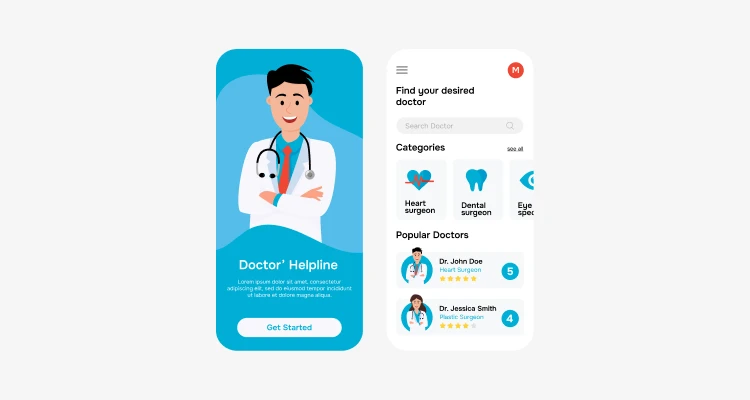
8. Healthcare Apps for Patients and General Users
General healthcare apps help with routing and provide general health information to their users. Helped manage physical and mental health and offered helpful data to users to take care of their regular health needs.
Some apps also offer features such as medication reminders, symptom tracking, and virtual consultations with healthcare professionals.
9. Mental health apps
Mental health applications are focused on mental well-being. This app provides tools and techniques for managing stress, anxiety, depression, or other mental health concerns. Users can access resources like guided meditation, therapy sessions, or mood tracking to improve their mental wellness.
10. Health monitoring apps
These apps help users track their health metrics and progress over time. They may include features for monitoring health signs like blood pressure, heart rate, or glucose levels.
Users can use these apps to keep track of their health and make informed decisions about their lifestyle and habits.
11. Medical Education Apps
Medical education apps are designed to make users aware of various medical topics, conditions, and treatments. They provide reliable information and resources to help users understand their health better.
Users can access articles, videos, or interactive tools to learn about medical issues and make informed decisions about their health care.
12. Health and Lifestyle Apps
The Lifestyle app provides lifestyle-related information and encourages users to adopt healthy lifestyles.
Built-in features like exercise routines, nutrition plans, and wellness challenges to help users improve their overall health. Users can keep track of their progress, set goals, and receive personalized recommendations for leading a healthier lifestyle.
Software consulting in healthcare provides every type of solution related to medical industries.
You can solve every development problem by contacting the right medical software consulting company for app development. You can directly share your project idea and get an estimate by visiting Zennaxx software consultancy.
Planning mobile development?
Ready to elevate your app development projects? Partner with us for seamless app development solutions.
Why is Healthcare App Development Essential for Businesses?
According to the reports, 6.5 billion smartphones are active in the world, and Current numbers show that the industry will experience a 14% growth year, so you can imagine how quickly this industry is growing.
So, bringing up with software consulting in healthcare app building support, we provide you the step-by-step healthcare app building guide for the best application development in an easy, professional way to cover all the areas.
6 Steps to Build a Healthcare App
Healthcare IT consulting services have some differences from other app development. You have to understand many specific needs and be concerned about some differences. If you want to know about a clear development road map, see this guide on development to give you clear direction and avoid making mistakes.
Step 1 – Do Market Analysis
You have to do a deep market analysis before building a healthcare app, and you have to include user pain points and needs. Fins, the competitor’s strong and weak sides, help you focus on the healthcare app’s development goals. Do research on the apps on the market, understand their simple UI/UX designs, and try to make them simpler than competitor’s apps.
Step 2 – Study Your Audience
Do complete user research during this process. Good market research helps you cover every user’s points in your healthcare application. You have to handle all kinds of sensitive issues directly through the app. It can be challenging to understand users’ problems while maintaining social rules when conducting focus groups, surveys, or interviews.
Know how people want to use your application by deep analysis with healthcare IT consulting services. What kind of hospital process can users wish to permeate the healthcare app? Know more about acute needs and their requirements before making a final list of your application. This study helps implement every helpful feature in your healthcare app.
Step 3 – Choose App Type
Now, it’s time to choose the application type. What kind of app will work more smoothly and help users? Read your functionality list and try to understand how these features get into your healthcare application. With a clear vision, you can create clarity between your needs and the development process. This choice is based on the problem in your application, your target audience, and the intended use case.
Step 4 – Create Design
The design and UI/UX parts are the main reasons behind your application’s goal, and the health app layout should be consistent and intuitive. You have to focus on your application layout and navigation process. With a simple design, users like to use most of your application, and for a better user experience, make it work smoothly on every device. We also recommend that you minimize the cognitive load of your application for a better user experience.
Step 5 – Make it HIPAA-compliant
We cannot adequately point out how sensitive the healthcare topic is, and developing healthcare applications takes work. If you want to create a healthcare app, you must follow specific regulations.
The USA region will require your app to comply with all HIPAA regulations. HIPAA was created to protect personal healthcare information for both patients and healthcare providers. If you want to understand this in more detail, read this paragraph on HIPAA compliance in healthcare app development.
Specific user roles have access to the health data of other users. Only the treating doctor has access to their patient’s profile, which includes analysis, progress, diagnosis, and other information.
Developers must use trustworthy encryption protocols to protect all personal health information. The IT team must keep information in multiple copies on different servers in case of a crash or error and respond to any alerts as soon as possible.
Every healthcare mobile app development service must be HIPAA compliant. When working on one of the projects, you must use secure chat, which is HIPAA compliant.
Please keep in mind that this is a partial list of what to include in your app complaint. We primarily concentrated on technological concerns, but there are also administrative requirements, such as assigning specific responsibilities and developing policies.
Check the official guidelines to make sure you’re not breaching any regulations. You can also work with companies that provide HIPAA audits to assist you in becoming or remaining compliant.
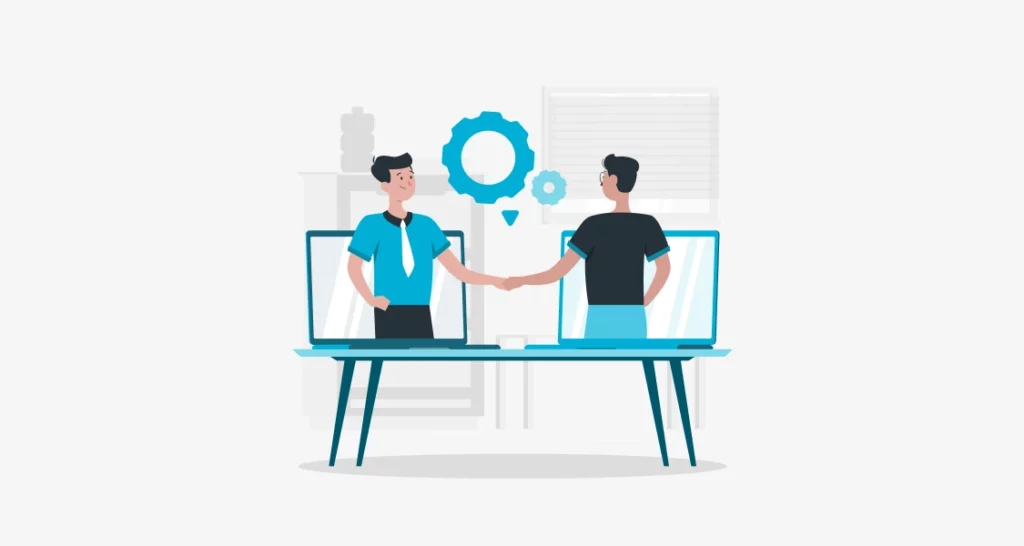
Step 6 – Build MVP
Now you have an idea about choosing the health application types and security guidelines. Before the launch of the actual product, you can buy the MVP because you will get an idea of market demand and user preferences. When developing a healthcare app MVP, please keep the following guidelines in mind: build it quickly and make it viable.
Before starting to build an MVP, make sure you have covered every feature users have needed and are solving every single problem.
MVP gives you a competitive advantage because you can enter the market faster and collect feedback from real users than if you built a full-fledged product right away.
Solving any difficulties and making minor improvements as per user feedback will make your application strong for the market at every point.
It saves your product’s market value while also informing customers about your new upcoming product.
Zennaxx Software Consulting provides a valuable solution for your project. Share brief details about your idea and get support to make it accurate by reaching out to us now!
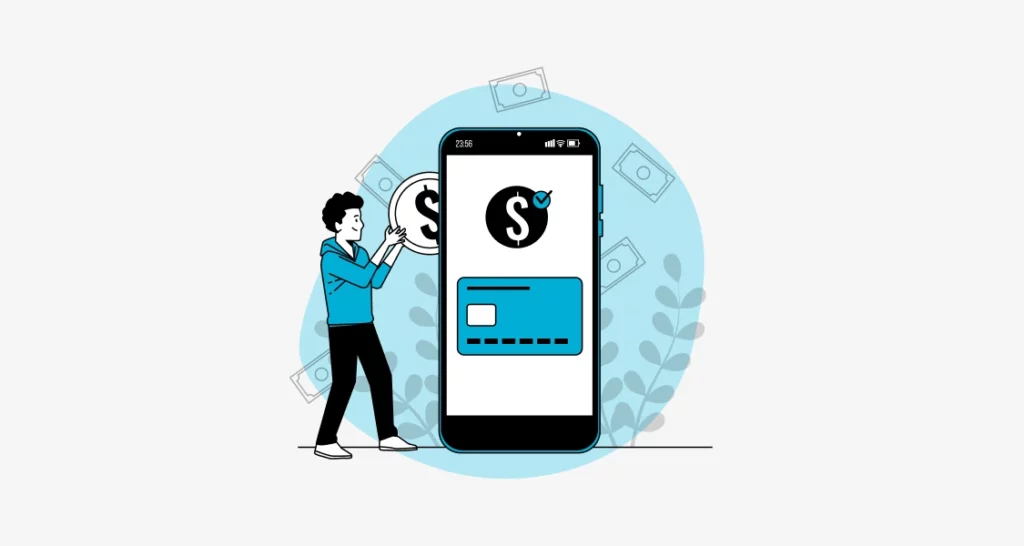
Healthcare App MVP: Features Checklist
Here is a concise checklist of necessary features for a healthcare app by using every software consulting in healthcare development: Minimum Viable Product (MVP):
User Authentication: Secure login and registration processes for patients, doctors, and other healthcare professionals.
Profile Management: Application Users can create and manage their own profiles, like data of personal information, medical histories, and preferences.
Appointment Scheduling: Functionality to schedule, reschedule, or cancel appointments with healthcare providers.
Telemedicine/Video Consultations: Capability for remote consultations between patients and healthcare professionals via video calls.
Electronic Health Records (EHR): Storage and access to digital health records, including diagnoses, medications, lab results, and treatment plans.
Prescription Management: A feature for doctors to prescribe medications electronically and for patients to view and refill prescriptions.
Health Monitoring: Tools for users to track vital signs, symptoms, medications, and other health-related data.
Notifications and Reminders: Automated alerts for appointments, medication reminders, and essential health updates.
Secure Messaging: Secure messaging functionality for communication between patients and healthcare providers.
Integration with Wearable Devices: Compatibility with wearable devices for seamless data transfer and monitoring.
Data Privacy and Security: Implementation of robust security measures to protect patient data in accordance with regulations such as HIPAA or GDPR.
Feedback and Rating System: A mechanism for users to provide feedback and rate their experiences with healthcare IT consulting services.
This 12-point checklist covers the core features necessary to create a functional healthcare app MVP. Additional features may be added in subsequent iterations based on specific requirements and the target audience.
Custom Healthcare App Development Cost and Time
The total cost of developing a wellness and health mobile application is defined by the number of features and capabilities.
With the growth of new technologies and systems, we have to take advantage of the best software consulting in healthcare to develop the best healthcare development with low-cost and quality features.
It depends on some essential roles and management; let us also take a look at the team requirements. To create a healthcare mobile app, you will need the team of:
Require Team
- Frontend Designer
- Back End Developer
- DevOps
- Business Analyst
- UI/UX Designer
- Team Project Manager
- Quality Assurance
Our healthcare mobile apps for patients provide services that are specifically curated to help you get the best results from the product.
The cost estimate will consequently be predicated on the inclusion of features from a single, viable product.
Let’s get an idea about the development time of some essential application parts and solutions.
Cost Of Development
We can calculate the cost based on the number of hours required to develop the health app. To create a mobile healthcare app, you can use one of three types of development services.
- In-house team
- Freelancers
- Outsource
Among one of these options, an in-house team will produce a high-quality product, which may be costly.
When you’re just getting started, hiring and maintaining an in-house team is expensive. It may charge $100 to $200 per hour.
The second option is to employ freelancers from all around the world. That’s another great way to save money.
However, quality is not guaranteed when freelancers design your application. So, what is the ideal strategy for creating a medical application?
It is possible to obtain the most competitive rates by hiring an outsourcing agency. When comparing service prices and developing a healthcare mobile app, we found that outsourcing has the lowest hourly rates and the highest quality development.
For application development in the healthcare industry, the going rate is about $40 per hour.
All The total costs of healthcare application development are in the table below.
This table provides you with the lowest estimated cost for buying a simple healthcare application. Contact us anytime to discuss your queries and problems. We help create healthcare applications from scratch with our experienced team of developers.
Challenges in Medical App Development
Medical app development is a project that includes our security plus government regulations and rules. Healthcare applications are not like developing games; we have to develop health-related software, so it is essential to care about solving every development challenge. Also, care about some points as per below:
- Regulatory Compliance
- Smooth Integration
- Clinical Validation
- Scalability
- Compatibility
- Updates & Maintenance
Several challenges come with the development of medical health applications. Some are that you have to be aware of, but software consulting in healthcare knows about every little rule and regulation and solves challenges.
Lack of Detailed Focus in One Domain
Medical software consulting focuses on medical areas or healthcare needs when making a medical app. If this wasn’t the case, the app might not be able to meet the particular needs of a specific medical profession or group of patients.
Non-Compliance with the Law
Medical apps have to follow strict rules and laws to protect patients, keep data private, and be correct. Not following these legal requirements can lead to harsh penalties, such as fines and legal action.
Lack of Security
Medical apps handle sensitive patient information, such as medical history and treatment records. If the security measures aren’t strong enough, people who shouldn’t be able to can get this info and steal your identity or breach your privacy.
Presence of Multiple Channels and Devices
To reach a wide connection and meet users’ needs, medical software needs to work smoothly on a number of different devices and platforms. Building and maintaining compatibility across various channels, on the other hand, can be challenging and takes more time and money.
You have to be aware of every tiny change and challenge users have to face. Try to solve it covered by new features and technology, which gives you a chance to grow more in the market.
Want to Automate Your Business Process With a Software Solution?
Zennaxx, a leading software development firm in Canada, has delivered 700+ bespoke solutions spanning various industries.
Essence
Software consulting in healthcare means helping healthcare organizations use technology by giving them skilled advice and support.
One of the main goals of software advising is to help organizations choose the best software solutions that are best for them. Software consultants in healthcare work closely with healthcare workers to learn about their processes, problems, and goals.
The population health management software experts are minimal and understand the health and the medical field deeply.
Healthcare technology solutions carefully look over current systems and procedures to find ways to make them better and then suggest software solutions that fit the organization’s needs and budget.
So, if you are thinking about developing a healthcare app, consult the software results for better guidance and support.
FAQs For Healthcare App Development
- HOW MUCH DOES IT COST TO DEVELOP A HEALTHCARE APP?
- According to an internet study report, A simple healthcare app might cost between $35,000 and $75,000, but more complicated apps might cost more than $100,000. The primary cost of developing a healthcare app depends on the features, how difficult they are, the location, and the development team’s expertise.
- HOW DO YOU MAKE AN EFFECTIVE MEDICAL MOBILE APP?
- First of all, focus on finding out your user’s needs, doing deep market research, designing an easy-to-use interface, following HIPAA compliance for data security, adding features like appointment scheduling and tele-medicine, and regularly updating and maintaining the app to make sure it works at its best.
- HOW LONG DOES IT TAKE TO DEVELOP A MEDICAL APP?
- Application building time depends on the features and complexity of the medical application. A fully working healthcare app can take anywhere from six months to more than a year to make. Rapid prototyping and MVP development can speed up the launch process.
- DO ALL THE HEALTHCARE APPS NEED TO BE HIPAA COMPLIANT?
- Yes, a healthcare app that works with protected health information (PHI) must follow the rules set by the Health Insurance Portability and Accountability Act (HIPAA) to protect patient data’s privacy and safety. If you don’t follow the rules, you could face legal consequences and fines.
- IF YOU COULD GIVE ME ONE PIECE OF ADVICE TO HELP ME CREATE AN EXCELLENT HEALTHCARE APP, WHAT WOULD IT BE?
- Put the safety of your users and their info ahead of everything else. Please focus on the user when making the app, and make sure it’s simple and easy to use. Also, HIPAA rules must be strictly followed to protect patients’ privacy and trust.
- HOW CAN WE USE BLOCKCHAIN TECHNOLOGY IN MEDICAL SOFTWARE?
- Blockchain technology can improve medical software by keeping patient records safe and open, promoting data integrity, letting healthcare providers share medical data safely, speeding up the claims process, and making it easier to track drugs and manage the supply chain.
- HOW CAN I MAKE SURE MY PATIENT APPLICATION REMAINS COMPETITIVE?
- To stay competitive, make sure you regularly add new features and improve existing ones based on what users say and how technology changes. Keep up with changes and trends in your business, work on making the user experience better, and spend money on marketing and advertising to stay visible and bring in new users.
